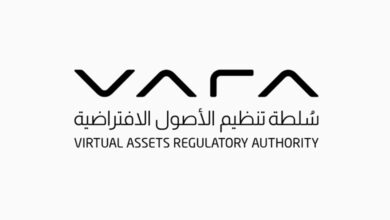From Founder Dreams to Funding Walls: Why Top Crypto Executives Are Returning to Employment
Crypto VCs didn’t understand the region, and regional VCs didn’t understand crypto. We were stuck between two worlds

In the fast-evolving digital asset industry, freedom often comes at a cost. Over the past year, several high-profile crypto founders—individuals with deep networks and proven success—chose to leave senior roles to pursue entrepreneurial ambitions. Their stories began with optimism, strong ideas, and a desire to build solutions in a space they helped shape. But many of these journeys hit an invisible barrier: the funding wall.
In a recent private roundtable held under Chatham House rules, several former executives—now either back in employment or advising new projects—shared candid reflections on why they stepped out to build, what happened next, and why the venture capital landscape in MENA remains one of their biggest obstacles.
The Motivation to Leave
Before facing the funding wall, these crypto founders left their roles for personal and strategic reasons. Many cited a desire for autonomy, creative freedom, and the flexibility to solve real problems they had encountered firsthand. “I wanted to build solutions that couldn’t be executed within the confines of a corporate structure,” said one participant.
They aimed to fix compliance hurdles, improve onboarding, or build platforms for underserved regions—ambitions they couldn’t fully realize in large institutions.
The Illusion of Readiness
“I thought I was ready to build,” said one founder. “I had the network, the vision, and a capable team—but quickly realized how little appetite there is for early-stage crypto startups in this region.”
Many assumed their credibility would attract investment. But, as one observed: “Crypto VCs didn’t understand the region, and regional VCs didn’t understand crypto. We were stuck between two worlds.”
The Funding Wall and the VC Disconnect
One major takeaway was the vast disconnect between crypto founders and venture capital in MENA. Founders with strong ideas and MVPs found themselves dismissed because local VCs lacked crypto literacy, while global investors didn’t see regional traction as relevant.
A compelling example was a DeFi terminal built for Arabic-speaking users—a market of over 500 million people. Despite having a functioning product and a strong tech team, the project failed to attract funding. Months later, two similar platforms in the U.S. secured early funding with ease. “We had the team, the product, and the use case. But we lacked a VC ecosystem that understood our vision.”
A Copy-Paste Investment Culture
Another barrier is the copy-paste mentality of regional investors. Many wait for Western validation before taking a chance. “We kept hearing: ‘Come back when someone else invests,’” shared one founder. “But if everyone waits, who leads?”
This mindset, combined with token-centric due diligence, left founders with big ideas and no support. “They didn’t ask about traction—they asked when we’re launching a token.”
Echoes from the Ecosystem
This conversation brought to mind a recent post circulating on X, which accused certain venture capital incubators of backing projects not for their merit, but for short-term financial gain. According to the post, many of the newest crypto projects are led by “installed” teams—constructed by VCs to exploit emerging narratives, pump token valuations, and exit quickly. These setups often lack genuine founders or long-term commitment, leaving behind hollow projects once the hype fades.
While not all participants agreed with the severity of the accusation, the sentiment resonated. “We were building real products for real users,” said one founder. “But we weren’t ‘narrative enough’ to fit the cycle.”
Why Founders Didn’t Go Back to Former Employers
So why didn’t these founders return to their former firms for support?
Some feared conflicts of interest, especially if the startup could be seen as competitive. Others described cold exits or institutions too rigid to support early-stage innovation. “They weren’t willing to give up equity—even to someone they once trusted.”
The absence of alumni support was stark. “Once you’re out, you’re out.”
Returning—Not Quitting, But Repositioning
For many, returning to employment wasn’t failure—it was a reset. Some accepted part-time or advisory roles to regain financial stability while keeping their projects on pause.
Their ideas—DeFi solutions for Arabic users, AI-powered wealth tools, or blockchain family offices—still have life. What’s missing is timing, capital, and venture alignment.
What Needs to Change
Every founder at the roundtable agreed: the VC environment in MENA must evolve.
“We need recurring sessions between builders and investors,” one participant urged. “Something to close the education gap. Right now, most VCs are one cycle behind.”
The group also questioned popular trends like real-world assets (RWAs). While RWAs promise efficiency, their contribution to decentralization remains unclear. “Stablecoins are technically RWAs,” one founder noted. “But are they building the future of finance, or just making TradFi more efficient?”
The Harsh Reality
The question is no longer whether crypto founders in MENA are capable of building impactful solutions.
The real question is: can the regional ecosystem evolve fast enough to support them?
Because until the funding wall comes down, many of the best ideas may remain on hold.





